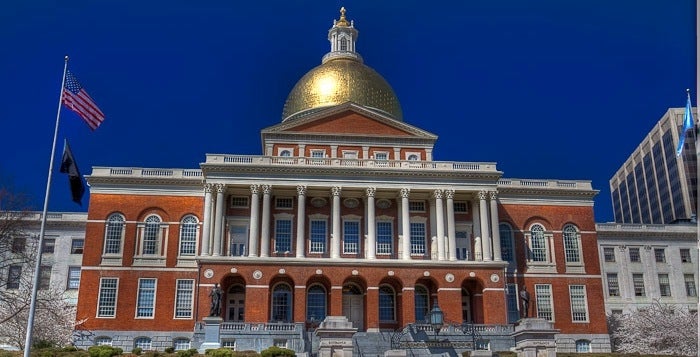Economists from universities around Massachusetts are endorsing a change in the state constitution to establish a 4 percent surtax on incomes over $1 million, a move estimated to generate close to $2 billion from nearly 20,000 filers.
“Currently the highest income one percent of taxpayers in Massachusetts pays a smaller share of their income in state and local taxes than the other 99 percent,” 71 economists wrote in a statement provided to the News Service in advance of a legislative hearing on the proposal Tuesday at the State House. Some of the economists plan to testify.
According to the economists, the proposed 9 percent tax on income over $1 million “would be similar” to rates in New Jersey, New York, Vermont, Iowa, Oregon, Minnesota and Washington, D.C. and less than California’s top rate.
While most of the economists are associated with public and private universities, the list includes the chairman of the “socially responsible” investment firm Zevin Asset Management and an economist at the consultancy Synapse Energy Economics, which provides service for utilities, environmental groups and government agencies.
Labor activists and others working with the group Raise Up Massachusetts gathered about 157,000 signatures, 92,617 of which were certified by the secretary of state’s office to put the petition before the Legislature.
Massachusetts voters may have a chance to weigh in directly on the issue during the November 2018 election if the proposal is advanced by House and Senate members meeting jointly in Constitutional Conventions this session, which runs through 2016, and in the 2017-2018 session.
The Revenue Committee will hold a hearing on the proposal Tuesday. In order for it to reach voters in 2018, the measure needs to be advanced by 50 members of the combined 200-seat House and Senate.
Chris Geehern, of the Associated Industries of Massachusetts, told the News Service the proposal would have a major effect on small businesses, many of which pay taxes at the individual rate rather than the corporate rate. The association, which opposes the change, argues the taxes eating into business revenues would curtail growth.
The Department of Revenue estimates the proposed surtax would affect 19,500 filers, raising about $1.9 billion in revenue. The amendment specifies the new revenues would be spent on transportation and education, areas that the economists believe will prove beneficial.
In their statement, the economists said increased education investments will boost the productivity of students while they are attending school and once they enter the workforce. “This increased productivity comes from the particular skills and ability to think creatively that the students gain, but also from the behavioral capacities they develop in schools,” they wrote. “Beyond productivity gains, schooling yields other benefits that directly and positively affect the state government’s budget-for example, Medicaid savings, tax revenue gains, and savings in the corrections system.”
The economists said a “well-functioning transportation system allows businesses to move goods more cheaply and efficiently, access a variety of suppliers and markets, and manage inventories more effectively. With the resulting lower costs, more firms are able to stay in or move to the state. Families gain as consumers, from lower priced goods, and as workers, with the addition of more jobs to the state economy and better access to those jobs.”
The economists posited that adding a 4 percent surcharge – on top of what is now a 5.1 percent income tax rate – would not result in a mass flight of the rich.
“While a very small number of wealthy taxpayers might decide to move in response to higher taxes, most will not. That is because state income tax rates – which are deductible on federal income taxes – are not typically the main reason people move,” read the statement from the economists. “When taxes on the very rich are increased, the net result is an overall gain in revenue.”
The economists wrote that Massachusetts is one of the wealthiest and most unequal states in the country, a point buttressed last week with the news that the Brookings Institution found Boston has the highest level of income inequality among the nation’s major cities.
Rep. Jay Kaufman, a Lexington Democrat and the co-chairman of the Revenue Committee, supports the bill and has polled several members. He told the News Service he has “little if any doubt” that the proposal will advance to the next legislative session.
Kaufman said even members who do not support the policy proposal favor the idea of putting it to voters – a group that includes his Senate counterpart, Michael Rodrigues, a Westport Democrat – though he acknowledged he has heard some political concerns about voting to advance a nearly $2 billion tax hike.
“There are concerns, but I think with maybe an exception or two, those concerns are outweighed by the benefits of the proposal,” Kaufman told the News Service.
John Miller of Wheaton College and Arthur MacEwan of UMass-Boston are among the economists backing the constitutional amendment who plan to testify on Tuesday.
The list of economists who signed the letter includes nearly three dozen from the University of Massachusetts system, which receives public funding through the state budget. Other economists who signed on work at Boston College, Harvard University, Northeastern University, MIT, Merrimack College, Smith College, Hampshire College and Tufts University.

